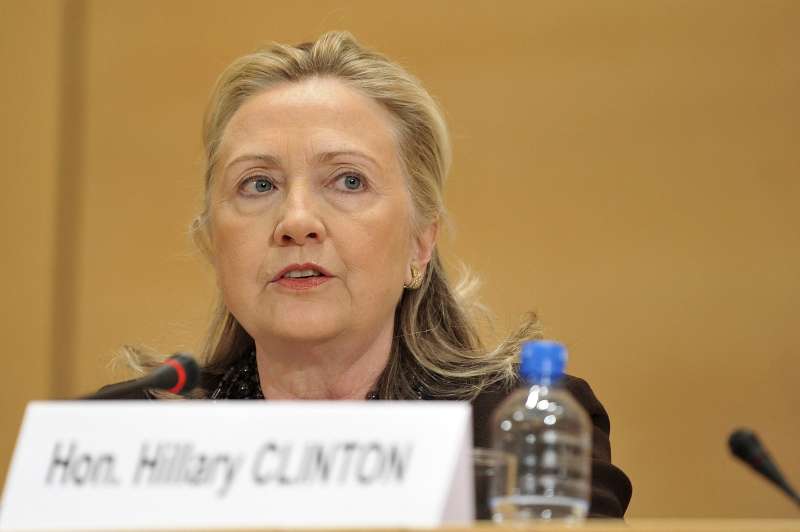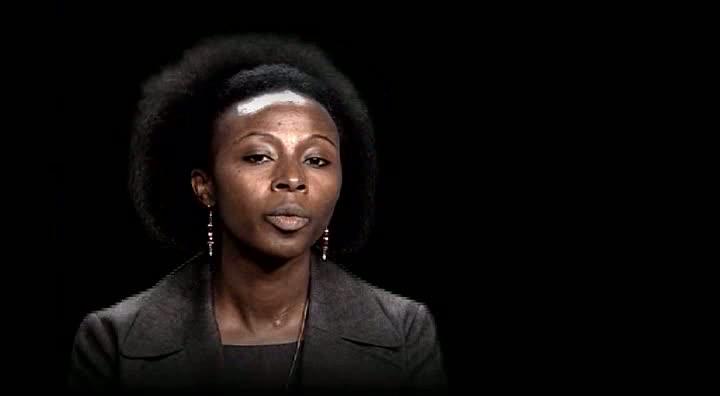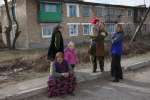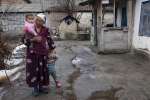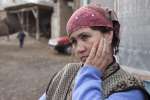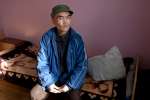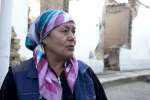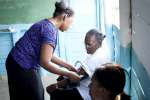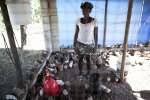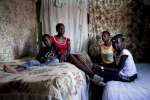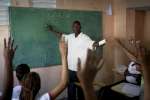- Text size
 |
|  |
|  |
| 
- Français
Landmark UNHCR conference opens with appeal for the world's forcibly displaced, stateless
News Stories, 7 December 2011
GENEVA, December 7 (UNHCR) – UN High Commissioner for Refugees António Guterres on Wednesday opened the largest conference of its kind in UNHCR's 60-year history with an appeal for urgent reinforcing of the international system that deals with the world's millions of stateless people and forcibly displaced.
In his opening address to the ministerial meeting in Geneva's Palais des Nations, Guterres warned that a succession of political crises and the global economic downturn were contributing to a significantly more challenging environment for protecting people who are forced to flee their homes. And he took a swipe at those playing on public uncertainty and anxiety to promote xenophobia.
Refugees are not a security threat, but rather the first victims of insecurity.
High Commissioner
"Populist politicians and irresponsible elements of the media exploit feelings of fear and insecurity to scapegoat foreigners, to try to force the adoption of restrictive policies, and to actively spread racist and xenophobic sentiments," he said, adding that governments and social and political movements needed to be more courageous in confronting intolerance. "Refugees are not a security threat, but rather the first victims of insecurity."
The UN refugee agency was created in December 1950, initially as a response to displacement in Europe in the wake of World War II. The 1951 UN Refugee Convention came about a few months later and has since become one of the most widely accepted international human rights instruments – responsible for saving millions of refugee lives.
UNHCR's work has expanded, meanwhile, to include statelessness and helping some of the millions of internally displaced people. At the start of this year, the global population of refugees, asylum-seekers and people displaced internally by conflict, stood at 43.7 million people. The number of stateless people is harder to determine, but is estimated at 12 million or more.
Guterres spoke of four challenges to providing the kind of protection that the Refugee Convention aspired to: failures of states to live up to their Convention obligations; disproportionate burdens for developing countries, who host 80 per cent of the world's refugees; the millions of refugees left stranded in protracted displacement limbo; and the complicating effects of factors such as population growth, food and water insecurity. He also warned that climate change was increasingly exacerbating other drivers of forced displacement.
"A growing number of people are uprooted by natural disasters or lose their livelihoods to desertification, with climate change now found to be the key factor accelerating all other drivers of forced displacement," he said. "These persons are not truly migrants, in the sense that they did not move voluntarily. As forcibly displaced not covered by the refugee protection regime, they find themselves in a legal void. So while the nature of forced displacement is rapidly evolving, the responses available to the international community have not kept pace."
The High Commissioner called on states to look at ways to strengthen their own protection mechanisms for the displaced and stateless. He also announced a commitment by UNHCR to do more to fight sexual and gender-based violence – with particular focus on women and girls of concern to UNHCR.
"What I am asking of you here today is not a new convention, it is not an extended mandate for UNHCR," he said. "What I am asking is for all of us to assume our shared duty… To open up the way for innovative responses that will help protect people in need, benefit the social cohesion of society and strengthen global peace and security."
United States Secretary of State Hillary Rodham Clinton, in a special address, reaffirmed her government's support for UNHCR while calling on governments to work closer together to help the stateless and the displaced. "We have to do a better job of breaking down barriers, both within our governments and between our governments and multilateral organizations," she said. "If we do what is necessary today, we can alleviate a lot of suffering."
Clinton said the United States would be delivering 28 pledges to the meeting, including one aimed at spreading awareness about "one of the major causes of statelessness, which is discrimination against women." She said at least 30 countries prevent women from acquiring, retaining or transmitting citizenship to their children or their foreign spouses. And in some cases nationality laws strip women of their citizenship if they marry someone from another country."
She urged other nations to join the US initiative to "build awareness about these issues and support efforts to end or amend such discriminatory laws."
The Secretary of State also said more needed to be done to support host nations, such as Kenya, "that have shown great compassion and concern, often at the expense of their security and needs." Kenya's Immigration Minister Otieno Kajwang told delegates Kenya now hosts more than 600,000 refugees from conflict-torn Somali. "Kenya is overwhelmed," he said, while noting the monetary costs and the security challenges. He insisted that host countries "are entitled to burden-sharing by the international community."
Clinton, meanwhile, cited a former Somali refugee resettled in the United States, Fatouma Elmi, as "evidence of the wisdom of investing in women." Elmi, who fled Somalia when war broke out in 1991, helps refugees build new lives in the US. She is part of the US delegation.
At a special treaty event on Wednesday evening, Serbia acceded to the 1961 Convention on the Reduction of Statelessness and Turkmenistan became party to the 1954 Convention relating to the Status of Stateless Persons
High Commissioner Guterres hailed the action taken by the two countries. He also honoured Panama, Croatia, Nigeria and the Philippines, which became parties to one or both of the statelessness conventions earlier in the year. He thanked other states that pledged on Wednesday to consider acceding to either of the statelessness conventions in the near future.
The 1954 Convention defines who is considered stateless and establishes minimum standards of treatment for such people. The 1961 Convention provides principles and a legal framework to prevent statelessness. With the recent accessions, the 1954 Convention now has 69 states parties while the 1961 Convention has 41.
Representatives from almost 150 countries are attending, including about 70 other ministerial-level government officials. The conference is the culmination of political and diplomatic efforts over many years by UNHCR to rally renewed support and commitments for the fundamental legal treaties that enable the agency to provide protection and assistance to people worldwide.
In a year of commemorations, UNHCR has celebrated important milestones for two of those treaties – the 60th anniversary of the UN Convention relating to the Status of Refugees and the 50th anniversary of the Convention on the Reduction of Statelessness. The UN refugee agency reached its own 60th birthday last December.
Keynote speeches:

